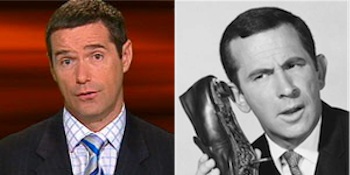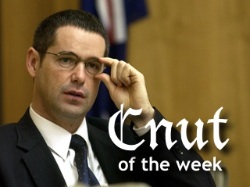![]() On Sunday, I’ll be at the Breaking Down the Barriers conference at the Sydney University law School, talking Internet content regulation — that is, censorship.
On Sunday, I’ll be at the Breaking Down the Barriers conference at the Sydney University law School, talking Internet content regulation — that is, censorship.
I’m on a forum panel (scroll down to “Forum 5”) with Geordie Guy from Electronic Frontiers Australia; James McDougall, Director, National Children’s and Youth Law Centre; network engineer Mark Newton; and moderator David Vaile, Executive Director of the Cyberspace Law and Policy Centre at UNSW.
I’ve been asked to talk about:
The debate surrounding the government’s filtering proposal, with an overview of how the issue is played out in the media; the different tactics used by proponents and opponents of the proposal; how the issue has been framed and how moral panic has been used in the debate; how evidence is used by proponents and opponents of the filtering proposal and in particular how the Government uses evidence to support its “evidence-based policy”; the potential impact of the proposal if any on free speech and different interpretations of actions that have been taken.
Whew!
I’ll record my presentation, perhaps with video if it can be organised, so stay tuned.
[Update 4.35pm: I suppose I should mention that the forum is scheduled for 2.15pm Sunday.]


